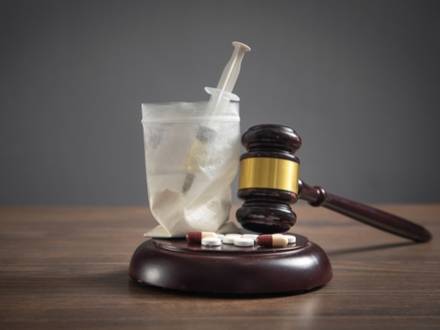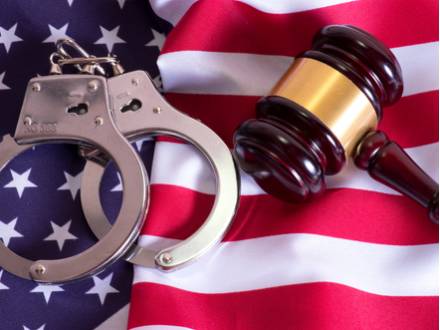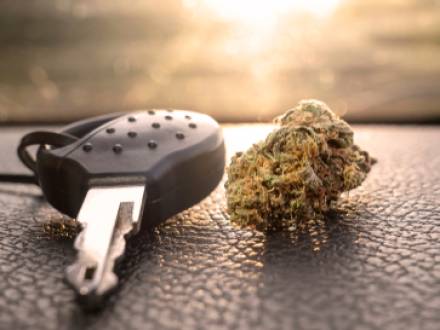Recent Blog Posts
Advocates Seek Details About Facial Recognition Systems Used by Police
 There are many tools used by law enforcement to investigate crimes, identify suspects, make arrests, and prosecute people on criminal charges. As concerns have grown about the increasing use of artificial intelligence (AI) in nearly all aspects of society, one particular use of this technology has raised red flags: facial recognition. Police departments are using facial recognition technology (FRT) to identify suspects, but there are a growing number of cases where the wrong people have been identified and charged with crimes.
There are many tools used by law enforcement to investigate crimes, identify suspects, make arrests, and prosecute people on criminal charges. As concerns have grown about the increasing use of artificial intelligence (AI) in nearly all aspects of society, one particular use of this technology has raised red flags: facial recognition. Police departments are using facial recognition technology (FRT) to identify suspects, but there are a growing number of cases where the wrong people have been identified and charged with crimes.
As criminal justice and civil rights advocates address the misuses of technology in ways that cause innocent people to suffer, they have taken action to gain information about the ways FRT works and how it is used by law enforcement. While this may eventually lead to some policy changes that will help protect people’s rights, those who are currently facing criminal charges based on misidentifications by police will need to understand how to respond. Representation by a criminal defense attorney who understands the best ways to protect their clients’ rights is crucial.
Take it Down Act Makes Sharing AI Deepfake Porn a Federal Crime
 Over the past few years, artificial intelligence (AI) tools have become available, allowing people to easily create a variety of content, including computer-generated images and videos. Some of these tools may be used to create "deepfake" images and videos that appear to show actual people. In some cases, deepfake materials are pornographic, depicting well-known celebrities or other people in sexual situations.
Over the past few years, artificial intelligence (AI) tools have become available, allowing people to easily create a variety of content, including computer-generated images and videos. Some of these tools may be used to create "deepfake" images and videos that appear to show actual people. In some cases, deepfake materials are pornographic, depicting well-known celebrities or other people in sexual situations.
Because of the harm that may be caused to people who are depicted in this manner, activists have been working to pass laws to make sharing deepfake porn illegal. Congress recently passed the Take it Down Act, and President Trump signed this act into law, making these activities a federal crime.
As laws change and new uses of technology emerge, people may face criminal charges because they have created certain types of images or videos using AI or shared these materials with others. The penalties for these offenses can be serious, and a person’s reputation and relationships may also be affected. To address charges related to deepfake porn, revenge porn, or other similar materials, it is important to work with an attorney who can provide a strong defense.
Is Possession of a Machine Gun a Criminal Offense?
 Unlike many other countries, the United States has permissive laws that address the ownership of guns. The Second Amendment to the U.S. Constitution guarantees the "right to bear arms," and while people may disagree about the extent of this right, it is generally agreed that people are allowed to possess and use firearms. While certain types of guns, including machine guns, have been banned by both federal and state laws, court cases have challenged these bans, leading to confusion about what types of weapons may be permitted and whether certain firearms may be restricted.
Unlike many other countries, the United States has permissive laws that address the ownership of guns. The Second Amendment to the U.S. Constitution guarantees the "right to bear arms," and while people may disagree about the extent of this right, it is generally agreed that people are allowed to possess and use firearms. While certain types of guns, including machine guns, have been banned by both federal and state laws, court cases have challenged these bans, leading to confusion about what types of weapons may be permitted and whether certain firearms may be restricted.
Due to the uncertainty about what types of guns may be covered by federal and state laws, some people may be charged with weapons offenses without realizing that they had violated the law. For those who are facing either state or federal charges related to firearms, representation by an experienced attorney can be crucial. A criminal defense lawyer who has a strong understanding of the applicable laws can provide guidance on the best ways to resolve these cases while working to protect their client’s rights.
How Common Is Misconduct by Prosecutors in Federal Criminal Cases?
 At every level of the criminal justice system, defendants are likely to feel that they are at a disadvantage. The government has extensive resources that may be used to arrest people, charge them with crimes, and prosecute them with the intent of securing convictions. In some cases, defendants face prosecutorial misconduct in which prosecutors behave unethically or violate people’s rights. This is an especially significant concern in federal criminal cases.
At every level of the criminal justice system, defendants are likely to feel that they are at a disadvantage. The government has extensive resources that may be used to arrest people, charge them with crimes, and prosecute them with the intent of securing convictions. In some cases, defendants face prosecutorial misconduct in which prosecutors behave unethically or violate people’s rights. This is an especially significant concern in federal criminal cases.
Because of the potential for misconduct by prosecutors, anyone who has been charged with a federal crime will need a strong defense attorney on their side. A lawyer who has experience defending clients in federal courts and standing up to the tactics used by prosecutors or other government officials can make sure a defendant’s rights will be protected at all times while fighting to prevent a conviction.
How Faulty Drug Tests Can Affect DCF and Criminal Cases
 Drug addiction is a major concern throughout the United States. In recent years, a great deal of attention has been paid to the opioid crisis, because the rates of overdose deaths due to fentanyl and related drugs has skyrocketed. Unfortunately, due to the government’s ongoing "war on drugs," people who suffer from addiction are more likely to face legal consequences than to get the help they need. To make matters worse, some people may face serious penalties due to faulty drug tests even when they have not used drugs or have only used prescription medications that were obtained legitimately.
Drug addiction is a major concern throughout the United States. In recent years, a great deal of attention has been paid to the opioid crisis, because the rates of overdose deaths due to fentanyl and related drugs has skyrocketed. Unfortunately, due to the government’s ongoing "war on drugs," people who suffer from addiction are more likely to face legal consequences than to get the help they need. To make matters worse, some people may face serious penalties due to faulty drug tests even when they have not used drugs or have only used prescription medications that were obtained legitimately.
A positive drug test can affect a person in many ways. Some people who test positive for controlled substances may face drug charges, while others may face investigations from the Department of Children and Families (DCF) that could result in their children being removed from their custody. Representation from a skilled, experienced attorney is crucial to help resolve these cases successfully.
U.S. Justice Department Cracks Down on Drug Crimes and Sex Crimes
 The administration of President Donald Trump has taken a tough-on-crime stance since he assumed office for his second term. Officials at the U.S. Department of Justice have highlighted multiple operations that have targeted alleged criminals throughout the United States and internationally, including a large number of cases involving drug crimes and sex crimes. In many cases, these efforts have been a part of the administration’s focus on illegal immigration, with undocumented immigrants being arrested.
The administration of President Donald Trump has taken a tough-on-crime stance since he assumed office for his second term. Officials at the U.S. Department of Justice have highlighted multiple operations that have targeted alleged criminals throughout the United States and internationally, including a large number of cases involving drug crimes and sex crimes. In many cases, these efforts have been a part of the administration’s focus on illegal immigration, with undocumented immigrants being arrested.
Because of the increased focus on certain types of criminal offenses, people who are accused of these crimes may be treated harshly, and they could face severe penalties if they are convicted. Anyone who is being investigated for drug crimes, sex crimes, or other related offenses will need to make sure to secure representation from an attorney who has experience in cases involving federal crimes.
New Connecticut Law May Address Gun Permits and Liability
 Due to concerns about gun violence, lawmakers are looking to implement new laws to address the illegal possession and use of firearms. The Connecticut legislature is currently considering a law that would place new restrictions on gun permits for certain people, while also allowing for lawsuits against gun manufacturers and others in the firearms industry. Gun owners and people who manufacture, distribute, or sell firearms may be affected by this new law.
Due to concerns about gun violence, lawmakers are looking to implement new laws to address the illegal possession and use of firearms. The Connecticut legislature is currently considering a law that would place new restrictions on gun permits for certain people, while also allowing for lawsuits against gun manufacturers and others in the firearms industry. Gun owners and people who manufacture, distribute, or sell firearms may be affected by this new law.
As new laws are passed, increased scrutiny may be placed on people who own and use firearms, and some people may face weapons charges based on their possession or use of firearms or ammunition. These laws may also provide opportunities for people who have been affected by gun violence to address the harm they have suffered through personal injury lawsuits. For those who are facing criminal charges related to firearms or who need to understand their legal options as victims, representation from an experienced attorney is essential.
Trump Administration Scales Back Enforcement of White Collar Crimes
 There are multiple types of criminal charges that are classified as white collar crimes. These offenses usually involve financial matters and include money laundering, insider trading, bribery, or fraud. Because white collar crimes involve financial markets, investors in multiple states and countries, and other issues that cross state lines and international borders, they are often prosecuted at the federal level. However, recent actions by the administration of President Donald Trump may indicate that federal officials are choosing not to prosecute certain types of white collar crimes.
There are multiple types of criminal charges that are classified as white collar crimes. These offenses usually involve financial matters and include money laundering, insider trading, bribery, or fraud. Because white collar crimes involve financial markets, investors in multiple states and countries, and other issues that cross state lines and international borders, they are often prosecuted at the federal level. However, recent actions by the administration of President Donald Trump may indicate that federal officials are choosing not to prosecute certain types of white collar crimes.
The laws and regulations that may apply when people are charged with white collar crimes can be very complex. While the federal government may choose not to focus on certain types of offenses, there are still many situations where people or entities may need to address criminal charges of a financial nature. Representation from an experienced attorney can be crucial in these situations, ensuring that a defendant can take steps to defend against a conviction, seek to have charges dismissed, or determine what other options may be available.
Can Immigrants Face Criminal Charges for Failing to Register?
 Since taking office for his second term, President Donald Trump has made immigration one of the primary areas of focus for his administration. He has pledged to deport millions of undocumented immigrants, and as part of this effort, the administration has implemented a new rule requiring immigrants to register with the government. Failure to register as required or failure to carry proof of registration may not only result in immigration concerns such as deportation, but immigrants could face criminal charges.
Since taking office for his second term, President Donald Trump has made immigration one of the primary areas of focus for his administration. He has pledged to deport millions of undocumented immigrants, and as part of this effort, the administration has implemented a new rule requiring immigrants to register with the government. Failure to register as required or failure to carry proof of registration may not only result in immigration concerns such as deportation, but immigrants could face criminal charges.
Undocumented immigrants or others who are concerned about the consequences they may face when interacting with immigration officials will need to understand their rights and the steps they can take to address registration requirements or criminal charges. People in these situations can benefit by working with a Hartford, Connecticut criminal defense attorney who has a strong understanding of the ways criminal law intersects with immigration law.
New Connecticut Law May Allow for More Marijuana DUI Arrests
 People may be arrested for driving under the influence (DUI) based on claims that they are intoxicated by alcohol, marijuana, or other substances. Driving under the influence of marijuana is an issue that has received more attention in recent years due to the legalization of cannabis in multiple states, including Connecticut. Law enforcement officials are looking to prevent intoxicated driving, and as part of these efforts, they are asking Connecticut lawmakers to pass a new law that may allow them to stop and arrest more people who are suspected of marijuana-related DUI.
People may be arrested for driving under the influence (DUI) based on claims that they are intoxicated by alcohol, marijuana, or other substances. Driving under the influence of marijuana is an issue that has received more attention in recent years due to the legalization of cannabis in multiple states, including Connecticut. Law enforcement officials are looking to prevent intoxicated driving, and as part of these efforts, they are asking Connecticut lawmakers to pass a new law that may allow them to stop and arrest more people who are suspected of marijuana-related DUI.
Even though marijuana use is now legal for adults in Connecticut, there are a variety of situations where people may face criminal charges related to the use of cannabis. Those who are charged with DUI or other offenses can work with an experienced criminal defense attorney to address these charges and defend against a conviction.






